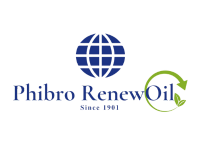Step-by-Step Guide to Setting Up a Sustainable Kitchen Waste Management System
- Tyler Zemantic
- Sep 6, 2024
- 4 min read
Updated: Jan 2, 2025
Running a sustainable kitchen goes beyond serving great food—it’s also about how you manage the waste that comes from cooking. As the foodservice industry continues to grow, restaurants and commercial kitchens need to become more conscious of the environmental impact their waste has. A critical piece of this is handling used cooking oil responsibly, ensuring it doesn’t end up clogging pipes or polluting waterways. But the good news is that by setting up an efficient waste management system, you can run a greener kitchen while benefiting your business in the process.
In this post, we'll guide you through the steps to create a sustainable waste management system in your kitchen, focusing specifically on how to manage used cooking oil and reduce overall waste.

1. Start With a Kitchen Waste Audit
Before you dive into setting up a new system, take a good look at your current waste practices. Ask yourself: how are we currently handling used cooking oil? Are we following proper disposal methods, or are we putting our oil down the drain or in the trash? Understanding where you stand now will help you identify the areas that need improvement.
For used cooking oil, the key is ensuring it doesn’t go into the drain. It can cause serious damage to plumbing and lead to fines. Instead, make sure it’s collected and disposed of properly.
2. Set Up a Used Cooking Oil Collection System
A dedicated system for collecting used cooking oil is the foundation of any sustainable waste management system. Phibro RenewOil provides a variety of secure, theft-resistant containers, including 50-gallon caddies, 55-gallon drums, and larger 150-gallon and 235-gallon containers, designed to make oil collection easy and safe.
These containers make it simple to store used oil until it’s ready for pickup, and the anti-theft technology ensures your oil is kept secure. Whether you're operating a small kitchen or a large-scale food service operation, having the right container helps make oil recycling hassle-free.
3. Find a Reliable Collection Partner
Once you’ve set up your containers, you need a reliable partner to collect and recycle your used cooking oil. Phibro RenewOil offers flexible pickup schedules to make sure your containers are emptied at the right time, preventing overflow and maintaining a clean kitchen.
With our monitoring system in place, we know when your container is getting full, making sure we come to pick up before it’s a problem. After every pickup, you’ll receive an email that details the amount of oil collected and the date. This transparency helps keep your records clean and accurate.
4. Cut Down on Waste
In addition to properly managing used cooking oil, there are other ways to cut down on overall waste in your kitchen. Here are a few simple steps you can take:
Plan Your Menu: Reducing food waste starts with how you plan your menu. Serving appropriate portions and using ingredients efficiently can help minimize excess waste.
Compost Organic Waste: Set up a composting station for food scraps. This can help turn waste into valuable nutrients for your garden, helping the environment while keeping your kitchen clean.
Recycle Non-Food Waste: Paper, plastic, and glass can easily be recycled. Make sure your team is sorting these materials correctly so they don’t end up in a landfill.
5. Educate Your Team
Once your waste management system is in place, it’s important to ensure your staff understands how to use it properly. Offer training on what goes where, how to handle oil, and why it’s important to recycle used cooking oil. By getting your team on board, you’ll create a culture of sustainability in your kitchen.
6. Track Your Progress and Measure Success
Now that you’ve got your system running, it’s time to track how it’s working. Phibro RenewOil helps businesses by providing regular reports on how much oil is being collected and the environmental benefits that come with it. Measuring your success will give you the confidence to keep improving your practices and track the positive impact you're making on the environment.
7. Enjoy the Benefits of Sustainability
The positive impact of a sustainable waste management system is more than just environmental—it also brings real business benefits:
Cost Savings: By properly recycling oil and managing waste, you can avoid expensive plumbing repairs and fines for improper disposal.
Increased Efficiency: A streamlined waste disposal process helps maintain a clean, organized kitchen, which in turn boosts productivity.
Enhanced Reputation: Consumers today care about sustainability. By implementing green practices, you’re not only doing the right thing for the planet but also attracting customers who value eco-conscious businesses.
Setting up a sustainable kitchen waste management system is a powerful step toward a greener, more efficient kitchen. With the right system in place to manage your used cooking oil and reduce other forms of waste, you can improve your kitchen operations, save money, and contribute to a healthier planet.
Phibro RenewOil is here to help every step of the way. We offer secure, hassle-free used cooking oil collection services and work with businesses to create tailored solutions for waste management. Ready to make your kitchen more sustainable? Get in touch today and see how we can support you in creating a cleaner, greener kitchen.




Comments